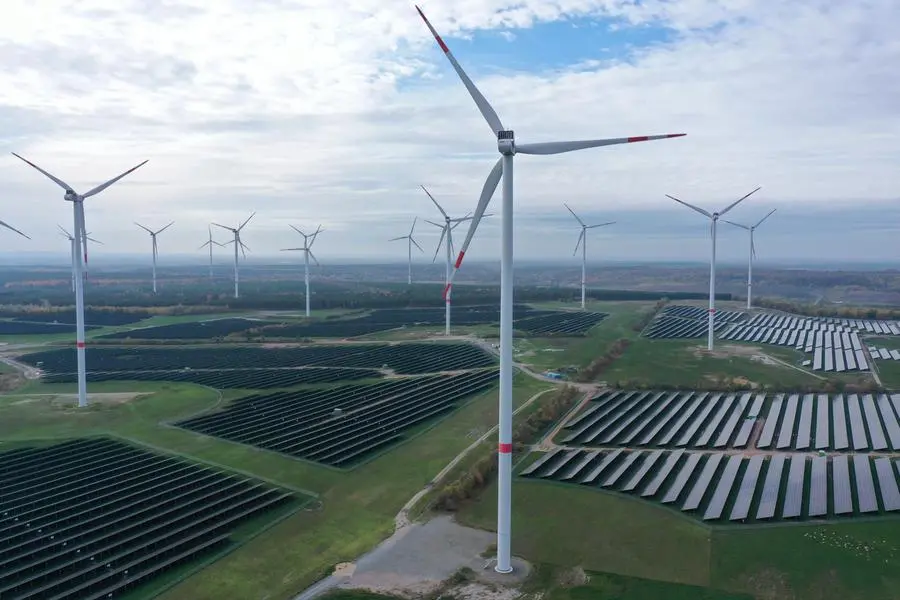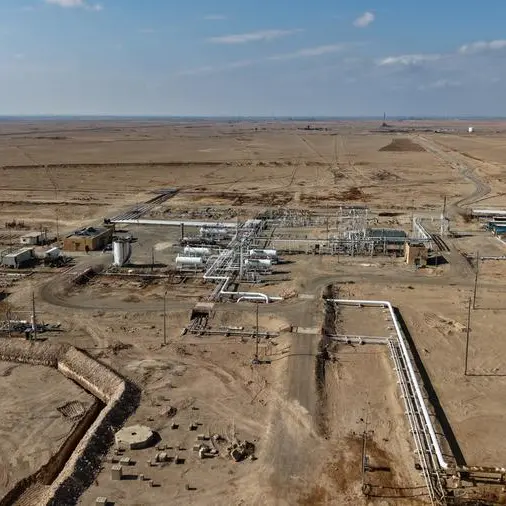PHOTO
Agricultural experts have shifted attention to the conversion of agricultural waste to renewable electricity. The process is a scientific term is known as pyrochemy. It is a renewable energy technology developed and patented by a United Kingdom-based company, Pyrogenesys. The main drive of the Pyrochemy process is the transformation of “waste biomass” into a decentralised source of Combined Cooling, Heat, Power (CCHP) and value-added commodities like biochar smokeless fuel briquettes. The CCHP concept is designed to handle a much wider range of feedstocks than the conventional gasifier technologies currently on the market.
In countries where there is an abundance of biomass, there is a cheap cost of processing of high volumes of cheap, abundant waste biomass, using Pyrochemy technology to clean-carbon neutral cooling, heat and power at a very competitive unit cost per kWh.
The Pyrochemy technology has been developed and deployed across the African continent, where populations are subjected to power outages due to inappropriate technology that make the production of energy very costly and access to power is encumbered by so many factors. Pyrochemy is suited to African food processors and farming communities through the conversion of locally available agricultural waste for production of renewable energy. Apart from seeking to reduce the Carbon dioxide in the atmosphere which contributes to global warming, the greenhouse effect has been identified as the main driver to climate change that leaves devastating consequences on the environment and nature.
Apart from deliberately working to reduce the amount of GHGs produced from agricultural waste and providing cheaper options, other than fossil fuels, the Pyrochemy technology is anchored in providing energy for small-scale power generation and servicing areas where households are divided into widely-spaced clusters.
PPA2 Consortium visit to Nigeria
Speaking in Abuja recently when the PyroPower Africa (PPA2) visited Nigeria, the Founder and Chief Executive Officer, CEO, Pyrogenesys, Mr Simon Ighofose, said the deployment of the technology in Nigeria has become imperative as the vast arable land shows that Nigeria possesses the skills in tackling challenges faced by Nigeria in the area of food security.
According to Ighofose, “Pyrogenesys has invented a technology that has been patented. The technology is called Pyrochemy. This technology can take any type of agricultural waste, heat it without oxygen, and break it down into two major parts. The first part is a vapour, which is a fuel. We burn that vapour to generate renewable electricity and renewable heat. The second part is a solid similar to charcoal, but it is a very special form of carbon. We upgraded it into a biofertilizer. We then supply that biofertilizer back to the farmers from whom we initially obtained the waste. This gives farmers a locally produced biofertilizer that can outperform imported inorganic NPK, which reduces soil fertility. Soil fertility needs carbon to become more fertile.
Providing insight on what biofertiliser does in enriching soil, the Founder/CEO of Pyrogenesys said that “When farmers put this into the soil, it removes carbon from the environment for 100 million years. This process helps in the fight against climate change. At the last COP28 in Dubai, over $160 trillion was pledged for people who can help fight climate change. We hope that all those who pledged to invest in climate and carbon removal projects will consider what Nigerian farmers are doing with Pyrochemy technology and the PyroPower Africa consortium led by PyroGenesys.”
In advancing and transforming the rustic agricultural methods of farming, the African Agricultural Technology Foundation (AATF), a member of the consortium, is set to roll out a Mechanization Hub Model, whereby its scope includes, among others, farmer aggregation by bringing services closer to farmers; bundling of mechanization services with Agro-inputs to strengthen Good Agronomic Practices (GAPs) and farmers’ training and capacity-strengthening on Agribusiness; gender mainstreaming and youth engagement.
According to the Senior Manager, Policy, Agribusiness and Commercialisation of AATF, and Interim Managing Director of Agridrive Nigeria Ltd, Dr Daniel Kyalo Willy, “AATF brings two elements to the projects. One is the mobilisation of the farmers who are involved in the production of cassava. After we mobilize the farmers, we train them on good agronomic practices because we want them also, apart from supplying the biomass, to also increase the yield of their tubers of cassava. The second thing is, we are bringing to them mechanism services because they need to produce less drudgery approaches”.
The consortium comprises funders and partners, including Professor Kevin Tansey and Dr Matthew Payne from the University of Leicester. Prof Tansey noted that, using the Satellite Earth Observation Data, they are able to identify harvest date, crop yield indications and crop identification. Describing the Pyrochemy technology as a game changer in resolving some of the problems confronting agriculture in Nigeria, the researcher expressed delight that deploying the new technology is capable of resolving some of the challenges in both the agric and power sectors. Tansey’s position is shared by Dr Payne who sees the success of the new technology as very promising, taking into cognisance the abundance of biomass in the country.
Already, farmers in Oyo State are set to reap from the benefits of the Pyrochemy when the technology is fully launched in the near future. When fully launched, the new technology will tackle post-harvest losses, mechanization, process, biofertilizer production, biofuel production, climate-smart agriculture, rural development and industrialisation, job creation for youth and women, and boosting food production and security.
Before concluding their visits to Abuja, the nation’s capital, members of the consortium visited selected government organisations like the Abuja National Space Research and Development Agency (NASRDA) United Nations Industrial Development Organization (UNIDO) and Sahel Consulting for strategic partnership and collaboration.
After the Abuja visit, the PPA2 Consortium visited ATMANCorp Farm in Ido, Oyo State, where the plans have been finalised to fully install the Pyrochemy technology. Before visiting the site of the ATMANCorp flour mill, the consortium paid a courtesy visit to the Oyo State Commissioner of Energy and Mineral Resources, Hon. Temilolu Seun Ashamu, and other senior government officials. The meeting afforded the consortium the opportunity to formally introduce the new technology and seek future collaborations. The commissioner expressed enthusiasm for the innovative waste-to-energy solution, Pyrochemy, as it aligns with the vision of the ministry in deploying cutting-edge technologies to secure energy supply, address energy poverty, ensure affordable energy for the public, and enhance energy security in Oyo State. He assured the Consortium of the ministry’s support and requested an invitation to the launch event when the project site becomes operational.
In a meeting attended by smallholder farmers in the areas, they confessed to have commenced reaping bountifully as a result of improved technology introduced by ATMANCorp that is family owned and has a daily processing capacity of 100 tonnes root. Some of its clients include multinational companies (MNCs) that include Nestle Promasidor and Nestle who are engaged in buying cassava flour produced by the company, while using the biomass for producing renewable energy and bio-fertilizer for farmers.
Speaking to newsmen after the consortium’s visit to the ATMANCorp Cassava Mill in Oyo State, the Managing Director of the Mill, Mr. Seyi Oyenuga, said the project is aimed at empowering farmers through enhancing their agricultural production. He expressed the hope that when the Pyrochemy technology is fully launched, the necessary eco system shall be automated to provide renewable energy, including selling bio-fertilizer at a lower cost than the chemical fertilizer.
He lamented that the factory used no fewer than 150 litres per day and bemoaned the high cost to the company. He noted that, with the planned launching of Pyrochemy technology, biomass would be deployed to produce biofuel and bio-fertilizer for the use of farmers.
The Chief Executive Officer of Pyrogenesys disclosed that the Consortium of companies is set to partner the Oyo State government towards boosting food production in the state. The essence of the partnership, he pointed out, is to create a partnership for employment opportunities for teeming youths in Oyo State and beyond through renewable energy. Identifying benefits to be accrued to farmers, Ighofose said the proposed partnership would be of greater benefits not only to the farmers but the entire people in Oyo state.
According to the Ighofose, “We have had a series of meetings with the farmers on renewable energy. We have let them realise that their farmland waste can be converted into use as a source of energy. The waste on the farmland can be converted to bio-energy, bio-fuels, bio-fertilizer to mention but few. Most of the companies in Nigeria are operating at a loss with total dependency on the oil and gas sector as the only source of energy. This has resulted in a geometric hike in the prices of the finished products”.
Expressing happiness that, “with a shift to bio-fuels, the consumer will pay less for the product while electricity generation will no longer be cumbersome”, Aside, the farmers will have access to bio-fertilizer to boost food production nationwide. This development, if religiously earnest, will increase the GDP rate of the state”.
Recognising that most rural communities are unbanked and suffer from financial exclusion, Mr Andrew Otiko, who is the Chief Executive Officer of MOBINET, a financial technology company is fully equipped to provides technology infrastructure that assist in banking services, including mobile banking, reliable and secure payments, remittances, ATM service, among others.
Managing Director of Pyrogenesys Nigeria Ltd, Mrs. Israela Enyi-Ighofose, is pleased with the outcome of the visit which provided an opportunity for synergy with governments and critical stakeholders for collaboration. She is optimistic that with the formal launch of the Pyrochemy plant that shall take place soon, the nation will be availed of the new technology to provide energy to off-grid communities and enhance agricultural activities in rural areas.
With the Pyrochemy plant set to be fully launched in Oyo State in the coming months, it won’t take a long time for other states to join in the race to embrace a technology that has the potential of improving the fortunes of Nigeria’s agriculture and energy.
Copyright © 2022 Nigerian Tribune Provided by SyndiGate Media Inc. (Syndigate.info).





















